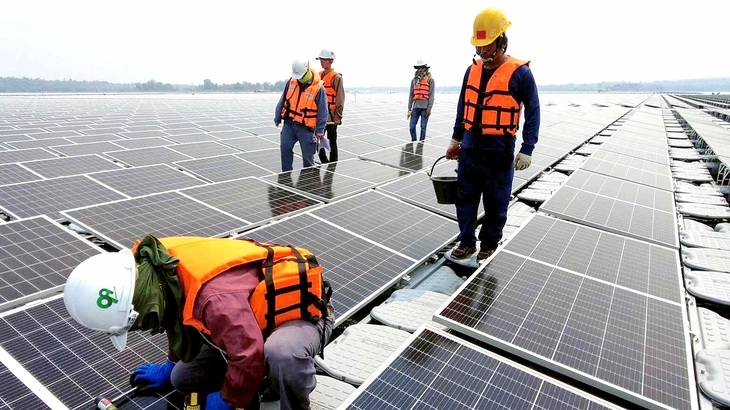
A solar panel farm in Ubon Ratchathani province, Thailand - Photo: REUTERS
According to Bloomberg News, on April 21, the US Department of Commerce announced its final conclusion on whether to impose anti-dumping and countervailing duties on crystalline photovoltaic cells (solar panels) originating from Cambodia, Malaysia, Thailand and Vietnam.
The scope of the investigation includes both products manufactured, assembled and not manufactured, assembled in these countries.
The conclusion asserted that the companies under investigation had “unfairly benefited from government subsidies” to export solar panels to the US at prices below production costs.
Notably, the US Commerce Department report stated: "What we have long observed has been confirmed. China-based solar companies have gamed the system, dumping prices to undercut US companies and cost American workers their livelihoods."
Specifically, Cambodia is the country with the heaviest tax rate.
Four companies from this country, including Jintek Photovoltaic Technology, Hounen Solar, ISC Cambodia and Solar Long PV-Tech, were subject to a total tax rate of up to 3,521% for not cooperating with the investigation. The remaining companies were subject to a tax rate of nearly 652%.
Most Thai companies are subject to taxes of up to 375.2%, while the general tax rate for Vietnamese companies is 395.9%. In particular, four Vietnamese companies are subject to a total tax of up to 813.92% (542.64% anti-subsidy tax and 271.28% anti-dumping tax).
Malaysia is the country with the lowest tax rate. Apart from a few companies that were “named and shamed”, Malaysian solar panels exported to the US are only taxed at 34.41%.
In 2024, the US imported $12.9 billion worth of solar equipment from the four Southeast Asian countries, accounting for 77% of total solar panel imports.
Bloomberg said the tariffs are expected to benefit US manufacturers. However, they will cause difficulties for US renewable energy developers, which have long relied on cheap supplies from abroad.
The new tariffs will be applied in parallel with the series of tariffs previously announced by US President Donald Trump.
The above tariffs still need to be reviewed by the US International Trade Commission (USITC) and a final decision will be made in early June.
If the commission finds that US producers are being harmed or threatened by imports from Southeast Asia, the tariffs will go into effect.
Source: https://tuoitre.vn/my-danh-thue-manh-pin-mat-troi-dong-nam-a-ap-thue-campuchia-3-521-20250422125117122.htm




![[Photo] General Secretary To Lam concludes visit to Russia, departs for Belarus](https://vphoto.vietnam.vn/thumb/1200x675/vietnam/resource/IMAGE/2025/5/11/0acf1081a95e4b1d9886c67fdafd95ed)

![[Photo] General Secretary To Lam meets and expresses gratitude to Vietnam's Belarusian friends](https://vphoto.vietnam.vn/thumb/1200x675/vietnam/resource/IMAGE/2025/5/11/c515ee2054c54a87aa8a7cb520f2fa6e)
![[Photo] General Secretary To Lam arrives in Minsk, begins state visit to Belarus](https://vphoto.vietnam.vn/thumb/1200x675/vietnam/resource/IMAGE/2025/5/11/76602f587468437f8b5b7104495f444d)
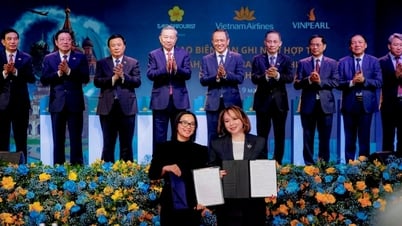
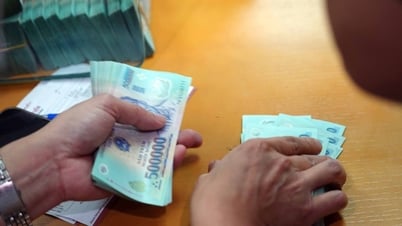


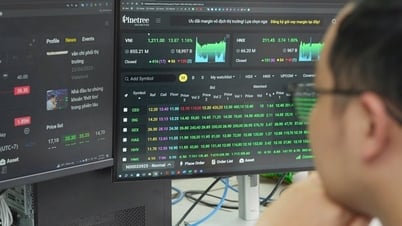












![[Photo] National Assembly Chairman Tran Thanh Man attends the Party Congress of the Committee for Culture and Social Affairs](https://vphoto.vietnam.vn/thumb/1200x675/vietnam/resource/IMAGE/2025/5/11/f5ed02beb9404bca998a08b34ef255a6)











































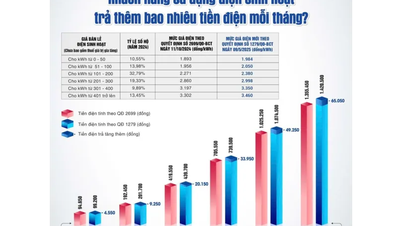





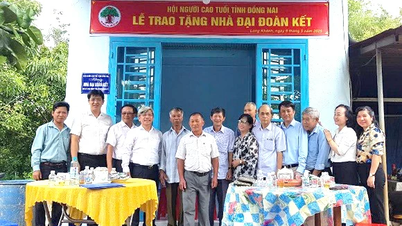










Comment (0)